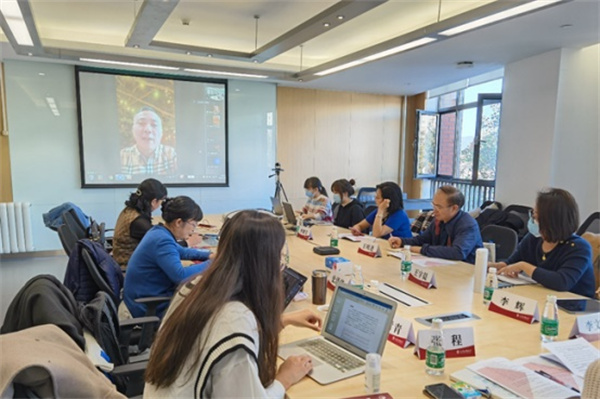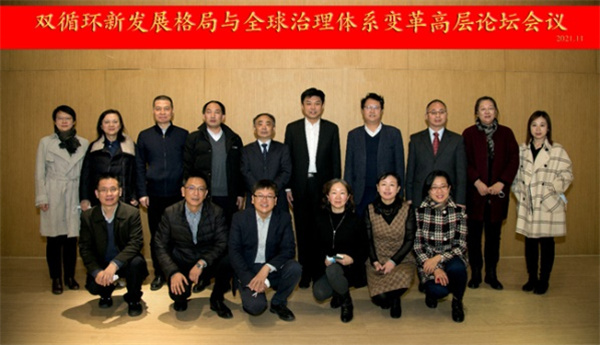- Research
- Research Centers
- Journals
- Admission
- Introduction
- Programs
- Application
- Alumni & Giving
- Alumni Club
- Giving
A forum on China’s dual-circulation development pattern and reform of its global governance system was held at Beijing Foreign Studies University (BFSU) on Nov 12.
The forum was hosted by the Academy of Regional and Global Governance and the School of Marxism at BFSU and the editorial board of the university’s journal Area Studies and Global Development.
More than 60 experts and scholars from renowned universities and research institutions attended the forum to exchange views on the prospect and development orientation of the new dual-circulation development pattern and the reform of the global governance system.
The forum was presided over by Tao Jiajun, director of the Office of Academic Research at BFSU.

BFSU holds a forum on China’s dual-circulation development pattern and reform of its global governance system on Nov 12. [Photo provided to bfsu.edu.cn]
Zhao Gang, a member of the standing committee of the CPC BFSU committee and vice-president of the university, noted that with the rapid development of the global pattern and under the impact of the COVID-19 pandemic, the trend of globalization has entered a downwards spiral, and global governance is facing new challenges. Against this background, accelerating the formation of a new development paradigm with domestic circulation as the mainstay and domestic and international circulations reinforcing each other is a systematic and deep-seated reformation of great importance.
The advance of the new pattern has created new opportunities, put forward new requirements and entitled new missions in national and regional research in China. This forum brings together well-known scholars from multiple disciplines to exchange views, share academic achievements and provide suggestions to the realization of new development goals, Zhao noted.
Huang Dahui, vice-dean of the School of International Studies at Renmin University of China, Zhao Qinghai, director of the editorial office of the journal China International Studies at the China Institute of International Studies, Deng Chundong, former dean of the School of Marxism from the University of the Chinese Academy of Social Sciences, and three other experts delivered keynote speeches. According to them, a novel pattern of global governance is being formed under the background of decentralized, regional and new globalization. The transformation from traditional hegemonic governance to the common governance of stakeholders will be a new trend. China needs to broaden its domestic and international markets, benchmark high-standard international economic and trade rules, deepen reform and realize institutional opening-up, enhance its ability to participate in global governance and international competition through regional governance, ensure the safety of its production chain and supply chain, create a relatively stable external development environment, and address traditional and non-traditional security issues.

Experts and scholars from renowned universities and research institutions attend the forum on China’s dual-circulation development pattern and reform of its global governance system on Nov 12. [Photo provided to bfsu.edu.cn]
In three sub-forums on “international economic governance under the new development pattern”, “the reform, political competition and cooperation of the international system” and “the new dual-circulation development pattern and Marxist studies”, experts shared the latest research results online and offline, summarized the logic of key areas, and discussed future research prospects and academic trends.